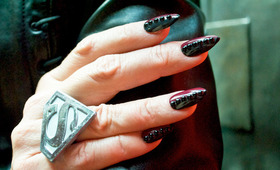
Here’s a common but stressful scenario. You were hired to do makeup for a bride and her bridesmaids, but on the day of the wedding the mother of the groom decides that she, her sister, and two daughters all need their makeup done too. As the bride’s makeup artist, you didn’t initially agree to those terms. What do you do?
A simple bridal contract agreement can save you from the hassle and heartache of mishaps and arguments on a bride’s big day. We spoke to bridal makeup artist and Beautylish member Nikole Morrow-Pettus about her process of nailing down a bridal contract with a client.
QUESTIONS
When in doubt, it’s best to ask more questions than necessary. “I always ask the bride about the look and feel of the wedding. Knowing the location is a good idea because if the wedding requires you to travel, you can establish a travel fee,” says Nikole.
DOCUMENTATION
The invoice Nikole gives her clients also serves as a contract. It’s best to put all of the requirements and requests that you have for your client on the document as well, so the bride is fully prepared on the day of her makeup application. “I always suggest she wears a button down top and moisturizes her face before I arrive,” suggests Nikole.
SERVICES AND PRICES
In the contract, Nikole clarifies every aspect of service for the bride and her party—including the trial run, rehearsal dinner, and how many people will need their makeup done for each occasion. Itemizing what services needed and the quantity of people you will be doing makeup on will help you determine how much time needed to allot for each event—also whether or not you will need an assistant.
CANCELLATIONS AND CHANGES
Every contract should clearly state how much notice the client needs to give for any changes to the agreement. Giving notice prior to the wedding day of additional clients or dropouts will help deter them from changing the head count—that way your kit is better prepared for the day.
PAYMENT
The best way insure you don’t get ditched on your payment at the altar is to stipulate a non-refundable deposit on the day of the bride’s trial, with your preferred type of payment. Negotiating when payment will be received—either day of the trial, the wedding day, or 15 days of completion—will limit confusion for the bride.
In the end, the bride comes first, it’s her special day! By making sure you both have all of your t’s crossed and i’s dotted, you can focus on making her look gorgeous on the most important day of her life.
You Might Also Like
-

Behind the Brand
Meet Sharon Chuter, Founder & CEO of UOMA Beauty
- 9
-

New Releases
First Look: Wayne Goss The Collector’s Edition
- 21
-

Features
Jan Arnold of CND, Fashion’s First Lady of Nails
- 122
-

Industry Interviews
Makeup Artist James Vincent Says There’s More To Beauty Than Just A Pretty Face
- 222
-

News
Miss Him, We Will: Creator of Yoda Passes Away
- 694
-

Beauty Careers
Morticians Are Makeup Artists Too
- 195
-

Features
Billy B on his Life, Career, and What He Hates in a Brush
- 192
-

Fragrances
New Mercedes-Benz Fragrance
- 12












